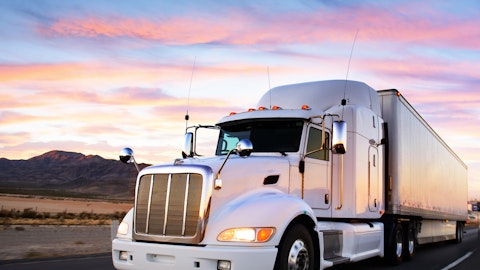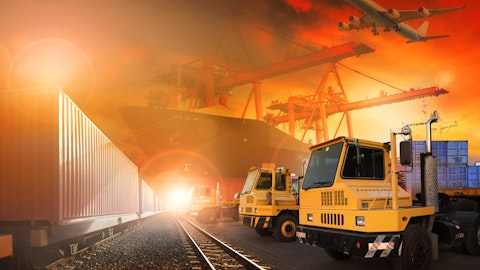The top 15 biggest logistics companies in the world in 2017 generated around $158 billion in revenue and stand to benefit much more than their smaller peers from the positive developments in the industry, like the introduction of new technologies, the growth of eCommerce, which boosts demand, and others. Moreover, due to their large size, most of the biggest logistics companies in the world are poised to remain among the leaders, as many companies in the list were also among the 10 biggest logistics companies in the world several years ago.
Logistics represents the management of resources, which involves their procurement, storage, and transportation to their final destinations. Most companies choose others to take care of their logistics needs, because it’s more cost effective. However, big companies might choose to have their own logistics management due to their large size that can justify the cost. For example, Amazon.com, Inc. (NASDAQ:AMZN) has been showing signs that it is planning to get into logistics in order to improve the efficiency of its deliveries to customers and at the same time provide services to other companies, taking advantage of a market with a value estimated at over $400 billion.
Last year, the transportation industry took some major steps forward, which in turn should help logistics companies improve their businesses. One of the most important developments was Amazon.com, Inc. (NASDAQ:AMZN) announcing its Prime Air program, which will deliver packages to customers using drones. Alphabet Inc. (NASDAQ:GOOGL) is working on similar technology, as are other companies. Car makers have made some progress in self-driving technology development, which is spreading into the trucking industry. Last October, Otto, a startup owned by Uber that is engaged in developing self-driving trucks, conducted the first test drive of a fully-autonomous truck that took a 120-mile journey delivering 50,000 cans of beer.

Copyright: khunaspix / 123RF Stock Photo
Automation is not coming to the logistics industry only in the form of trucks or drones. More and more companies are making their warehouses more automated, using robots and software for warehouse management, purchasing and other tasks.
Because of the introduction of digitization and automation, logistics companies are facing the potential entry of more competitors. For years, the logistics business had very high barriers to entry, as buying and operating a network of warehouses, and fleets of trucks and planes, was very capital intensive. Now, new companies can target portions of the industry and identify niches that are not covered sufficiently by big logistics companies. For example, Convoy is a small startup that was launched in 2015 and provides an online service that connects smaller trucking companies with businesses that need shipping of goods.
However, the top 15 biggest logistics companies in the world in 2017, like XPO Logistics Inc (NYSE:XPO), J B Hunt Transport Services Inc (NASDAQ:JBHT), and United Parcel Service, Inc. (NYSE:UPS) aren’t threatened by new competitors. For one, they have the market share and economies of scale of that require a lot of money to be matched. Some analysts reckon that even Amazon’s entry into the logistics business doesn’t pose a big risk for big logistics companies. Moreover, they themselves invest a lot of money in automation and new technology that will allow them to reduce costs and even pursue acquisitions of smaller tech companies, which sometimes makes better sense than developing software in-house.
With this in mind, let’s take a look at the top 15 biggest logistics companies in the world in 2017. The companies are sorted based on their revenue reported for the end of 2016.



